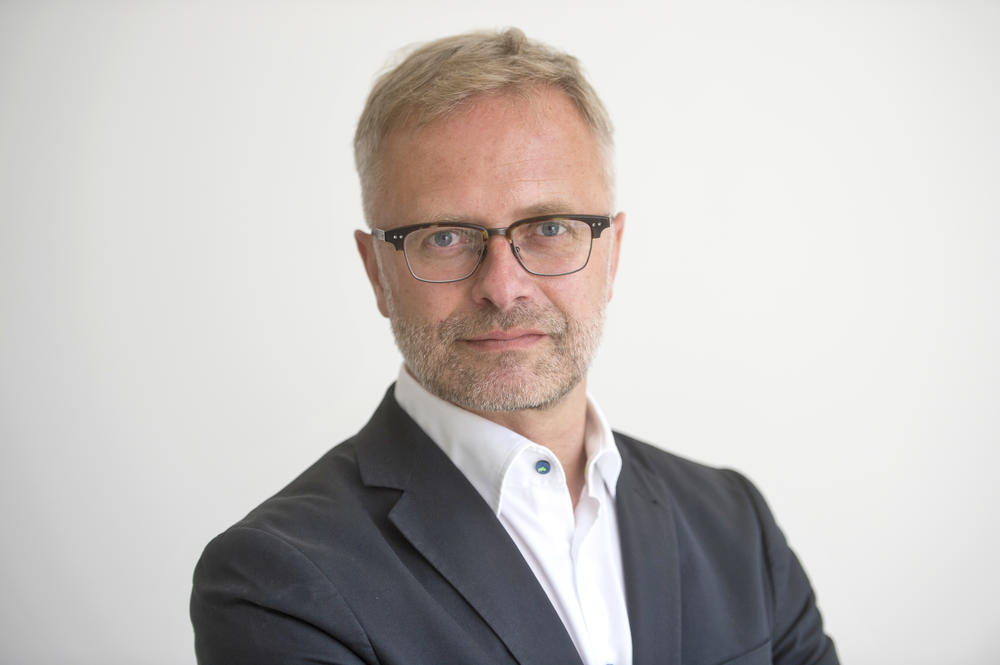How Freie Universität Berlin Is Supporting Students and Researchers Impacted by the War in Ukraine
An interview with Dr. Herbert Grieshop, director of the Division of International Affairs at Freie Universität
Apr 14, 2022
Freie Universität Berlin decided to suspend relations with scientific and academic institutions in Russia on February 25, 2022, in response to the Russian government’s war of aggression in Ukraine. Director of the Division of International Affairs, Dr. Herbert Grieshop, explains how this decision will impact students and researchers and how Freie Universität Berlin has been supporting refugees.
What effects will the decision taken by Freie Universität Berlin to suspend all relations with scientific and academic institutions in Russia have on students?
These measures have repercussions in areas like student mobility, so that unfortunately it is currently not possible to apply for a student exchange at Russian universities. As far as we know, all Freie Universität Berlin students have since returned to Germany from Russia.
In terms of double degree programs with Russian universities – which involve cooperation between the Institute for East European Studies and the Higher School of Economics in Moscow and St. Petersburg – we have rescinded our nominations for the coming academic year. But students who are already in this program shouldn’t worry about completing their studies – they can still graduate normally with a double degree.
To what extent will Belarusian and Russian students at Freie Universität Berlin be affected by these decisions?
Russian and Belarusian students are and will remain students of Freie Universität Berlin. They are welcome to continue their studies at our university, and prospective students from Belarus and Russia will still be able to apply for degree programs at Freie Universität Berlin.
This is very important to remember, as the measures that Freie Universität Berlin has taken are not intended to discriminate against individuals, but instead target Russian state institutions. Unfortunately, it has come to pass that the heads of our partner universities are in full support of this war, while many Russian researchers have spoken out against it.
Can students or prospective students who have had to flee because of the war in Ukraine enroll at Freie Universität Berlin?
Students who are refugees are welcome to apply to our university. The application period for master’s degree programs starting in the 2022/2023 winter semester will open on April 15, 2022; the one for bachelor’s degree programs on June 1, 2022. It is still possible to apply for enrollment in the 2022 summer semester, but those applications can only be considered on a case-by-case basis. The deadline has already passed, but if you meet the admission requirements of Freie Universität Berlin, then we may be able to enroll you for the summer semester with the approval of those in charge of the degree programs. We are incredibly grateful to the Student Records and Registration Office for making this possible.
If you don’t meet the admission requirements, then you can try applying for the welcome program for refugees, which primarily consists of intensive German language courses. We’re still unsure of how this will turn out because we don’t quite know yet what requirements and language skills incoming refugees will have. We are hoping to offer new courses from May onward.
Another option is to sign up to become an auditing student, where prospective students get the chance to complete individual degree program courses and acquire credits. Students looking to take up this option must still be enrolled at an institute of higher education in their home country.
What support is being offered to students who are impacted by the war in Ukraine at Freie Universität Berlin?
Freie Universität, Humboldt-Universität, and Technische Universität Berlin are currently working together with studierendenWERK Berlin to establish a “Ukraine Emergency Fund.” Students who have been impacted by the war and are already enrolled in one of Berlin’s universities will be able to request financial support here on a one-off basis. However, students who have suffered financially in some way because of the war are also entitled to request support from the studierendenWERK’s existing social assistance funds.
The Center for Academic Advising and Psychological Counseling provides psychological support to members of Freie Universität Berlin. Anyone whose mental health has been impacted due to the conflict in Ukraine can arrange a one-on-one counseling session at the center.
How is Freie Universität Berlin helping refugee and at-risk researchers??
We have set up a program with short-term scholarships for refugee and at-risk researchers. The program is designed for Ukrainian and Russian researchers who have had to leave their homeland due to the political situation. The departments have acquired extra funding to support and retain individual researchers for the time being.
There are also scholarship programs throughout Germany like the Walter Benjamin Program of the German Research Foundation, the Philipp Schwartz Initiative of the Alexander von Humboldt Foundation, or the new VolkswagenStiftung program. There are, of course, only a limited number of places and grants available in each case.
What should students, prospective students, researchers, volunteers, and helpers do if they have any questions?
Students, prospective students, and researchers can find a list of the most important questions and answers on our website. It includes helpful information about opportunities for university members to help out. The website is constantly being updated, so it’s a good idea to check it regularly.
Anyone who has any questions or suggestions can send them to helpdesk-ukraine@international.fu-berlin.de. If you have questions about beginning or continuing your studies at our university, then please get in touch with the Info Service directly at info-service@fu-berlin.de or +49 30 838 70000.
Anne Stiller conducted the interview. It was originally published in German on March 29, 2022, in campus.leben, the online magazine of Freie Universität Berlin.

